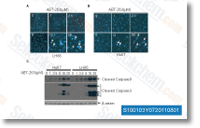These benefits are steady by using a requirement for metronidazole delicate colonic bacteria for com pound K synthesis. Ginseng alters colonic microbiome diversity Though bacteria are required for metabolism of some gin senosides, it’s also attainable that ginseng could possibly alter the microbial flora since it is a substrate for some bacteria. To assess the effects that ginseng could have about the microflora, we compared colonic bacterial populations in mice on 2 wks of Western eating plan alone vs. people on Western diet plan plus 250 ppm ginseng extract. As shown in Figure 4D, ginseng reduced the quantity of Teneri cutes, when raising the Bacteroidetes population. Principal coordinate examination advised the micro bial populations in mice obtaining ginseng have been mark edly distinct from those on Western diet regime alone.
These alterations help our hypothesis that ginseng consumption could alter the colonic microbiome. No matter if these alterations additional resources influence microbial metabolic activity in direction of ginseng, such as compound K bio synthesis, will require even further examine. Discussion We have proven to the to start with time that an extract of gin seng can inhibit colonic tumor development underneath con ditions of the Western diet regime within a model of inflammation related colon cancer. These research extend current findings that ginseng can inhibit colonic tumorigenesis under normal dietary extra fat conditions. We also observed that ginseng delayed the onset and appeared to reduce the severity of irritation on this model in agreement with a prior review.
Given that inflammation plays a important part within this model, the anti cancer results of ginseng possible derive in aspect from its capability to suppress inflammation, as also recommended by ginseng suppression of Cox two a molecular marker of irritation. selleck Cox 2 inhibition continues to be shown to directly suppress tumori genesis within this model. Ginseng appeared to inhibit tumor initiation, as tumor multiplicity plus the variety of adenomas were significantly reduced in the ginseng treated group. There was also a trend in direction of fewer cancers from the ginseng group, suggesting that this agent could possibly inhibit tumor progression, but this did not attain statistical significance. Within a review under standard dietary extra fat situations ginseng inhibited tumor progression. Ginseng supplementation diminished proliferation and improved apoptosis in tumors.
Compared to tumors from the unsupplemented group, decreased PCNA expression during the ginseng group was constant with reduced proliferation. Prior studies by our group and other people have shown  that ginseng or its metabolites induce anti proliferative and pro apoptotic effects in human cancer cells. Extra just lately, we demonstrated that compound K, a microbial metabolite of ginsenoside Rb1, induced G1 cell cycle slowing and accelerated apoptosis of colon cancer cells.
that ginseng or its metabolites induce anti proliferative and pro apoptotic effects in human cancer cells. Extra just lately, we demonstrated that compound K, a microbial metabolite of ginsenoside Rb1, induced G1 cell cycle slowing and accelerated apoptosis of colon cancer cells.
MiRna21
MicroRNA 21 known as hsa-mir-21 or miRNA21 is a mammalian microRNA
